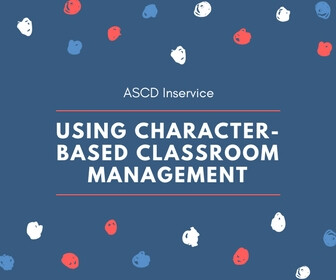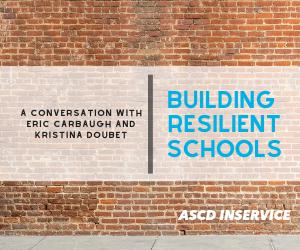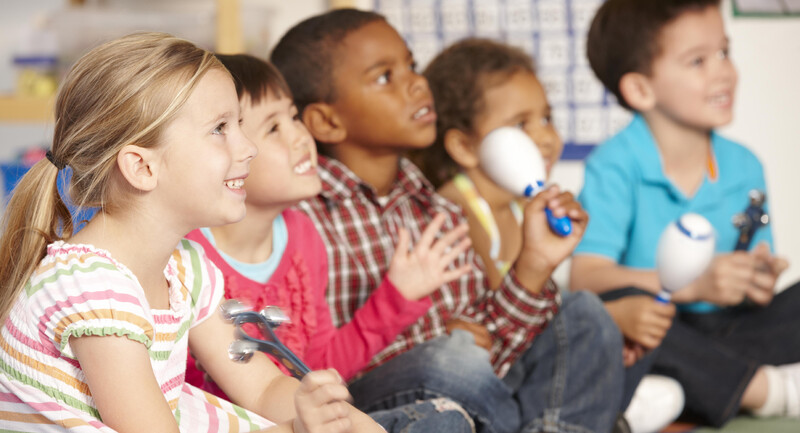By David Griffith & Sean Slade
Growing appreciation and practice of social-emotional learning (SEL) has been on the rise for several years now, but it has taken on even greater importance and relevance during the COVID-19 pandemic. Whatever a school’s current or future state—virtual, hybrid, or in-person learning—the well-being of students, their families, and school staff are essential to a functioning and effective school.
The key to this well-being is the need for everyone who is part of the school community feel safe, supported, and connected.
Social-emotional learning plays a core role in ameliorating the effects of the public health crisis regardless of educational setting, allowing students and staff alike to better understand and navigate their emotions, and providing a series of potential actions that can be taken at the individual, class and school community level to cope with and adapt to their ever-changing circumstances.
Children learn best when we treat them as human beings, with social and emotional as well as academic needs.
A recent report by the RAND Corporation presenting early findings from the Wallace Foundation’s Partnerships for Social and Emotional Learning Initiative (PSELI) echoes findings from other whole school initiatives and reemphasizes the need for common understandings – both common terminology and goals, clear priorities and goals, and a whole of school approach. PSELI involves partnerships between school districts and out-of-school time intermediaries (OSTIs) and schools and afterschool programs in 38 sites in six communities nationwide.
Although SEL-related benefits for children ultimately occur as a result of site-level activity, the leadership provided at the system level can be essential for helping ensure that site-level staff are well prepared and understand what they are expected to do.
The findings show the need for a unified SEL approach with common understandings, common application, and common appreciation of its benefits. Central to this shared mindset is the crucial role that school leaders play in driving such SEL efforts. These early findings about the value of this leadership match similar results that have been found when schools have introduced coordinated school health and whole child approaches to their communities. These findings highlight the critical role that leadership plays in ensuring both educational credibility and garnering multi-stakeholder allegiance in such approaches.
The RAND report’s findings have important implications for leaders of districts and OSTIs to successfully coordinate social and emotional learning:
- Set a specific vision for SEL, outlining the strategy, goals, benefits, and common terminology.
- Provide frequent, and clear communication and specific guidance about desired practices in implementing SEL activities.
- As with all whole school improvement efforts leaders, should anticipate that lack of time, staff turnover, and unexpected events might slow implementation. Clear and common messaging and specific goals help this process.
- Professional development that is ongoing, customized, and provided by coaches with prior expertise in the relevant setting whether that be the school or OSTI program is extremely beneficial to staff
RAND’s finding also provide helpful guidance for school and OSTI program staff on the following key issues:
- The need for site leaders to be intentional about protecting time for SEL and conveying to staff the priority of delivering the intended SEL instruction.
- Adapting an evidence-based SEL curriculum to meet local needs while at the same time retaining features that contribute to the curriculum’s effectiveness.
- The integration of SEL instruction into academics and OSTI activities often requires explicit guidance and resources, such as lesson plans and model activities, including SEL coaches who can provide valuable support to school and OSTI staff who are implementing new SEL programs and practices.
- Making time to meet a priority. Helping school and OSTI staff to share their knowledge and expertise—and explicitly acknowledging the power differential that favors schools over OSTi programs—is an important process and necessary ingredients for strong school-OSTI partnerships.
Social-emotional learning has always been important but never has it been more crucial in helping our schools, their staff, students, and communities navigate these challenging times. We can learn from these findings to help form safe, supportive, and connected whole school environments that form a tapestry of support from the classroom to the out-of-school time programs and into the community to help students and staff not only survive but to thrive.
To learn more, read “Early Lessons from Schools and Out-of-School Time Programs Implementing Social and Emotional Learning” via The Wallace Foundation’s Knowledge Center.
Sean Slade is an education leader, speaker, and author, with nearly three decades of experience in education in the U.S. and globally. He serves as Head of BTS Spark, North America, the social impact arm of BTS focusing on educational leadership development. Prior to BTS Spark, Sean was senior director of global outreach at ASCD, where he launched and grew the ASCD Whole Child Network across 56 countries and led the development of the Whole School, Whole Community, Whole Child Model (WSCC) with the CDC. His latest book is The Power of the Whole: What is Lost by Focusing on Individual Things.





